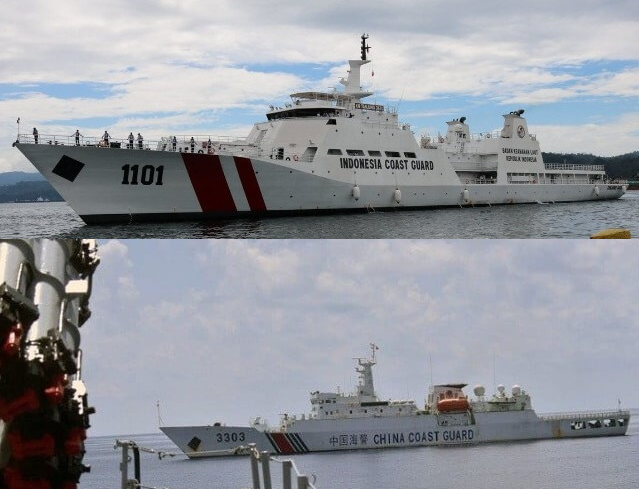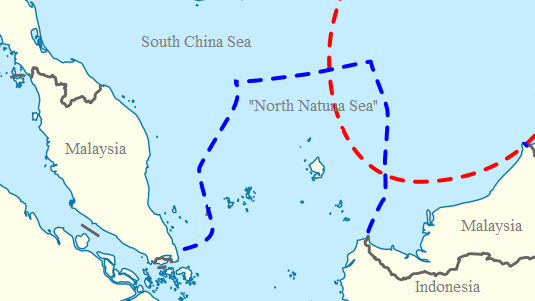
- China has aggressively claimed almost all of the South China Sea waters, including parts of Indonesia’s EEZ- a development that has been of great concern.
- Indonesia has a good standing in advocating the peaceful resolution of conflicts by dialogue and multilateral engagement.
- As long as China continues to stake its claim over the region, Indonesia’s position as a champion of maritime rights can go a long way in deciding the future of Southeast Asia.
Indonesia’s sovereignty position in the South China Sea has been one of the salient points of contestation in Southeast Asian geopolitics. Perhaps, this was seen on 14 November 2024, when officials from the Indonesian government reaffirmed that their country will not compromise on safeguarding its territorial integrity amid China’s persistent assertion of disputed waters within South China Sea. The hot-button issue has lately received much international publicity in light of regional instability; maritime security; and the safety of the international trade routes.
The South China Sea is one of the most trafficked places in the world in terms of maritime activity; over $5 trillion worth of goods pass through South China Sea waters annually. China has aggressively claimed almost all of the South China Sea waters, including parts of Indonesia’s EEZ- a development that has been of great concern. Indonesia, which avoided straight involvement in the territorial disputes flanking its borders for long, recently began speaking and acting more out on the issue of sovereignty. It is, in fact, pretty clear about its position: the country wouldn’t be allowed to have its unilateral actions in redefining its South China Sea boundaries; it has called time and again for an adherence to international law, particularly the UNCLOS.
Although a firm stance in place is supposed to be a stiff defense of territorial waters, it really underpins a strategic approach by Indonesia in keeping regional peace and stability. This really weighs against the surge in Chinese influence in the region while keeping relationships with other like-minded nations — India, the United States, and Australia — which have been begging for free and open navigation in the South China Sea.
It presents a very vital perspective, with great international weight. Not just one of the largest Southeast Asia countries but a good representative of ASEAN adds diplomatic weight to give shape to regional policy-making. Its moves will also spill over to other ASEAN members, most of whom are perturbed at the recent bravado China has been displaying in the South China Sea. Mating diplomatic engagement with military deterrence, Indonesia’s strategy becomes a template for neighbors seeking to balance China’s outreach in the South China Sea.

Indonesia has a good standing in advocating the peaceful resolution of conflicts by dialogue and multilateral engagement. The current hostility in South China Sea is an excellent opportunity for Indonesia to showcase its leadership in building regional consensus toward regional security and maritime governance. The position of Indonesia is very important for India because it is constructed around a country’s security interest within the Indo-Pacific. At the same time, the only needful statement of Indian foreign policy has always been freedom of navigation in the South China Sea while supporting every nation’s sovereignty rights over their respective territorial claims without any extraneous interference.
Indonesia’s policy appears to underpin this stance of India on regional security and these two join hands with common interest to an open, rules-based maritime order and set cooperation further towards a peaceful, prosperous, and secure Indo-Pacific region. And perhaps in the shining beacons of the dimension that insistence on international law thwarts the new geopolitical game, Indonesia’s steady position on sovereignty over the South China Sea is found. As long as China continues to stake its claim over the region, Indonesia’s position as a champion of maritime rights can go a long way in deciding the future of Southeast Asia and ensuring that international routes remain coercion-free and free from unilateral control.
Saisha is pursuing a Bachelor of Diplomacy and Foreign Policy at the JISA, O.P. Jindal Global University. Her areas of interest include economics, business, diaspora studies, and diplomacy. Views expressed are the author’s own.
